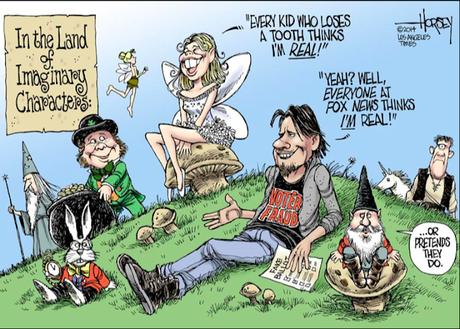 (Cartoon image is by David Horsey in the Los Angeles Times.)
(Cartoon image is by David Horsey in the Los Angeles Times.)Donald Trump was elected president by a quirk of our archaic Electoral College system. He did not get a majority of votes in the 2016 election, and that fact tortures his fragile ego. It disturbed him so much that he claimed several times that the only reason he didn't get a majority of votes was because 3 to 5 million fraudulent votes were cast (by non-citizen immigrants). When called out on this ridiculous claim, Trump created a presidential commission to find those fraudulent votes, and put Kris Kobach (noted liar and vote-suppressor) to head the commission. That commission could not find any voter fraud, and was finally disbanded.
Here is part of an article by Eli Rosenberg in The Washington Post on that fraudulent commission:
Maine Secretary of State Matthew Dunlap, one of the 11 members of the commission formed by President Trump to investigate supposed voter fraud, issued a scathing rebuke of the disbanded panel on Friday, accusing Vice Chair Kris Kobach and the White House of making false statements and saying that he had concluded that the panel had been set up to try to validate the president’s baseless claims about fraudulent votes in the 2016 election. Dunlap, one of four Democrats on the panel, made the statements in a report he sent to the commission’s two leaders — Vice President Pence and Kobach, who is Kansas’s secretary of state — after reviewing more than 8,000 documents from the group’s work, which he acquired only after a legal fight despite his participation on the panel. Before it was disbanded by Trump in January, the panel had never presented any findings or evidence of widespread voter fraud. But the White House claimed at the time that it had shut down the commission despite “substantial evidence of voter fraud” due to the mounting legal challenges it faced from states. Kobach, too, spoke around that timeabout how “some people on the left were getting uncomfortable about how much we were finding out.” Dunlap said that the commission’s documents that were turned over to him underscore the hollowness of those claims: “they do not contain evidence of widespread voter fraud,” he said in his report, adding that some of the documentation seemed to indicate that the commission was predicting it would find evidence of fraud, evincing “a troubling bias.” In particular, Dunlap pointed to an outline for a report the commission was working on that circulated in November 2017. The outline included sections for “Improper voter registration practices,” and “Instances of fraudulent or improper voting,” though the sections themselves were blank as they awaited evidence, speaking to what Dunlap said indicated a push for preordained conclusions. . . . He said he didn’t understand why people like Kobach continue to talk up the prevalence of voter fraud. “Where are the indictments, where are the prosecutions?” Dunlap said. “But that’s sort of de rigueur here. You throw out a bunch of numbers about supposed voter fraud, and it becomes the Halloween ghost story that keeps getting repeated. But nobody can really point to it.”

